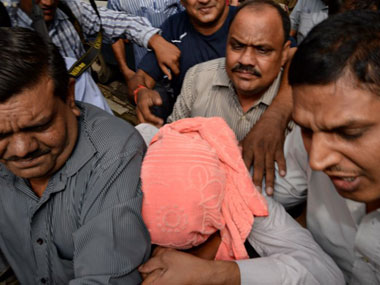Amid the massive outrage after the December 16 incident shook the nation’s conscience, perhaps the one accused who received maximum media attention was the juvenile, sentenced on August 31 to three years in a special home, the maximum sentence under the Juvenile Justice Act. While there was much baying for blood and claims that he was the “most brutal” of the five accused, a claim that was never corroborated by investigating officials, one issue that lay forgotten was the question of reforming juvenile convicts. In an excellent and finely detailed profile of the juvenile convict’s life in a Delhi reform home, the
Indian Express offers a rare glimpse on life inside some homes. The report highlights that the boy, who turned 18 recently, is now “a Class III student—the same standard he was in when sent away by his mother to earn a living at the age of six, 10-11 years ago.” The juvenile " has spent the eight months since his arrest for the Delhi bus gangrape to learn to read and write. He pores over the Hindi newspaper provided to him, as well as tries to follow the ticker running on the screen in Hindi news channels…" [caption id=“attachment_1096997” align=“alignleft” width=“380”] The Juvenile accused in the case. AFP[/caption] In between all the hatred and anger one often tends to overlook that the boy has in fact lived on his own since 11 in Delhi. The fact that he has lived without family support, any education or guidance is ignored. It is nobody’s contention that his crime must be condoned. But, as some organisations are now pointing out, there is a need to look at what reformatory efforts are made for our juvenile delinquents. The report goes on to say that the juvenile was under depression during his initial weeks in the reform home."He requested his welfare officers to help him meet his family members—he hadn’t met his parents and five siblings in five years." It seems that currently the juvenile is learning to cook and tailoring. The report says, “The cooking classes are on. In the next one, he will learn how to make street food such as bhalle-papri and gol-gappe. The National Institute of Open Schooling (NIOS) gives a certificate if an inmate completes a course." The story also offers an insight into life inside a reform home. For instance, “Saturdays are considered “special” days, when the inmates are given chhole-bhature for breakfast, can have puris at meals and are served paneer for dinner." “This is not a place where inmates are punished. Our job is to ensure they reform… Small things such as this go a long way,” says an official. The argument on whether a 17-year old must be treated differently from an 18-year-old is a continuing one, and there’s no doubt that rising crimes by juveniles is a concern too. However to deny a shot at reform, especially to juveniles who want to start over, could be short-sighted and counter-productive to serving justice. You can read the full Indian Express report
here.
When it comes to the Delhi gangrape case, which shook the nation’s conscience and caused massive outrage across the nation, perhaps the one accused who has received maximum media attention is the juvenile.
Advertisement
End of Article


)

)
)
)
)
)
)
)
)



